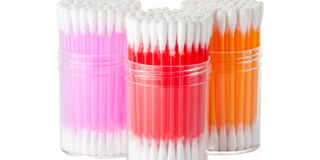That cotton swab could harm you

What you need to know:
- We are accustomed to using cotton swabs to clean our ears and get rid of that uncomfortable itch. However, cotton swabs can cause you more damage than anticipated.
- Dorcus Murungi explores how.
Damali Namubiru, 25, would always use cotton swabs to clean her ears. She says that everytime after cleaning she would feel relieved.
However, within a short time, when the ‘cleaning’ became a habit, she noticed an irritation in her ears. This, she says, necessitated her to visit a medical expert.
“I noticed that my sense of hearing was fading. I had a constant buzzing sound in the ears. So, I went to see an Ear Nose and Throat (ENT) specialist who after examination cautioned me against the use of cotton swabs,” she explains.
Ear wax useful
Dr Fred Biso, the President of Uganda Medical consultant for ENT specialist cautions against using cotton swabs to clean ears. To him, ear wax is useful.
“Earwax protects the skin of the human ear canal and assists in cleaning and lubrication while also providing protection from bacteria, fungi, insects and water. The absence of ear wax results in dry, itchy ears that are prone to infection,” he says.
He further explains that ears are self-cleaning and no one is supposed to tamper with them.
“A small amount of wax accumulates, dries out and falls out of the ear canal, ridding the ear of unwanted dust or sand particles,” he explains.
Dr Richard Asaba of Hoima Regional Referral Hospital says cleaning the ears brings irritations to the skin and can lead to further damage in the inner skin if the object used extends deeper.
“In the process of cleaning the ears, the delicate underlying skin of the ear becomes more susceptible to infection,” he observes.
In case of build-up
According to Dr Sabrina Kitaka of Mulago Hospital, pushing ear buds into the ears may seem harmless but it may damage the ear drum in the long run.
“No one is supposed to place anything inside the ear to remove dirt. You can always clean the outer ears gently with water and cotton,” she advises.
Dr Kitaka, however, notes that though ears are self-cleaning, there are some incidents when wax build-up affects the hearing of an individual. She says this causes pain, ringing in the ear, a foul odour or dizziness.
She advises those affected to always consult an ENT specialist to treat those effects.
Cleaning with hydrogen peroxide
According to Dr Biso, when too much wax accumulates in the ears, hydrogen peroxide is useful to soften and easily remove the wax. He says this softening agent is a good home remedy that can clean the ears. This can be done at home but with guidance from a doctor. He recommends the following;
• Lie head down on a pillow and keep the head level and the ears facing the ceiling. This position is important for the hydrogen peroxide drops to come in contact with the earwax.
• Use an eyedropper and place three to four drops of hydrogen peroxide into the ear. Keep the head down on the pillow with the ear directed to the ceiling, for at least five minutes.
• Sit up and use a soft cotton ball to mark any liquid from the outer ear. Wax will not come out right away but the hydrogen peroxide will be working to soften the earwax, so it will gradually come out on its own.
• Repeat the process for several days until the wax get cleared.




